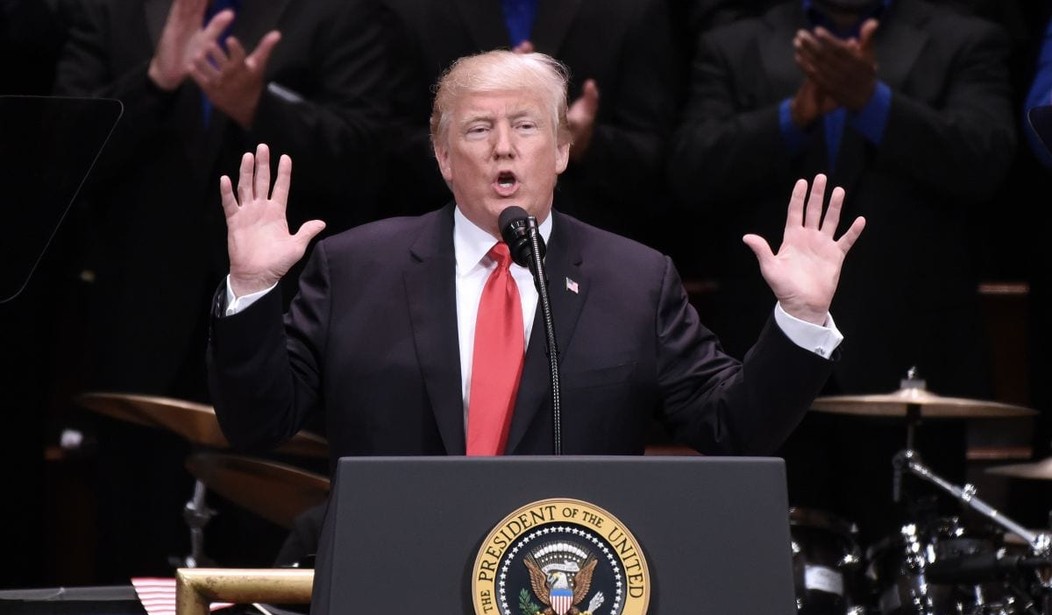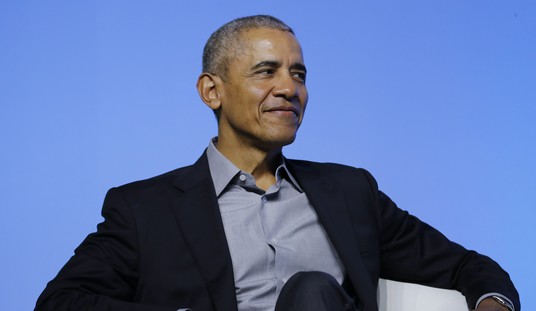It seems counterintuitive, but the more the left exaggerates the danger of Donald Trump and hysterically attacks him, the more certain they make his re-election.
That’s one of the conclusions reached by a Democratic pollster who points out the fractured nature of the electorate works to Trump’s advantage.
Second, the continued decline in support for both political parties works to Trump’s advantage. The lack of voters’ faith in both parties increases the probability that there will be a major third-party candidate on the 2020 ballot. It will also lead to other minor-party candidates joining the presidential race. The multi-candidate field will further divide the anti-Trump vote, making it possible for him to get reelected simply by holding on to his current level of support.
Third, despite dismal poll numbers, Trump enters the contest with a job approval rating that is certainly at least marginally better than what the current national polls would suggest. Throughout the 2016 election, most analysts tracked the national polling, which failed to capture Trump’s strength in key battleground states. Current surveys continue to understate his support. Many national polls survey all eligible voters, rather than registered or likely voters, which can underestimate Trump, and some voters may be reluctant to admit that they are pro-Trump at all. Add to that the fact that Trump effectively demonstrated during the 2016 campaign that he is capable of expanding his support by effectively demonizing his opponents.
Fourth, Trump’s support has largely remained durable with a core group of supporters. These are the voters Trump was referring to when he said that he could stand in the middle of Fifth Avenue and shoot someone and he wouldn’t lose votes. There is another group of Trump followers whose support isn’t unequivocal, but they have stayed with him because they still believe he will blow up the system and bring about real change.
In order to maintain and nurture his base, Trump will continue to embrace conflict, which will probably solidify his historically low approval ratings. Trump cannot win a two-person race this way. But he can prevail in a field with strong independent candidates on the ballot.
So for Democrats and others who want to beat Trump, unifying behind one candidate will be essential. In addition, Trump must carry Michigan, Pennsylvania and Wisconsin in 2020 to win. Efforts should begin now to chip away at his support in these states.
It would be as big a mistake to assume that Trump cannot win reelection in 2020 as it was for those of us who never thought that he could become president in the first place.
It’s not that voters don’t see Trump as a danger or that they don’t like him or trust him. It’s that they really don’t care. They’re sticking with Trump not despite the out-of-control attacks on him, but because the attackers are seen as part of the problem. They are convinced the Democrats can’t do any better and, in fact, will make things worse.
As for Democrats being united behind one candidate, this isn’t very likely either. The Sanders/Warren wing of the party will turn up their noses at an establishment candidate while the establishment wing will run away from a Sanders clone. The radical wing of the party cannot get along with the slightly less radical wing, making unity an unachievable dream.
Meanwhile, Trump may not be beloved by all Republicans but the base is behind him and even the establishment needs the base to win. Trump will have a lot more money to build an organization and may surprise again by making inroads in more Democratic states. In short, while the Democrats’ road to victory is narrow and strewn with potholes, Trump may have several paths to win re-election, giving him a decisive advantage over his opponent, whoever that may be.










Join the conversation as a VIP Member